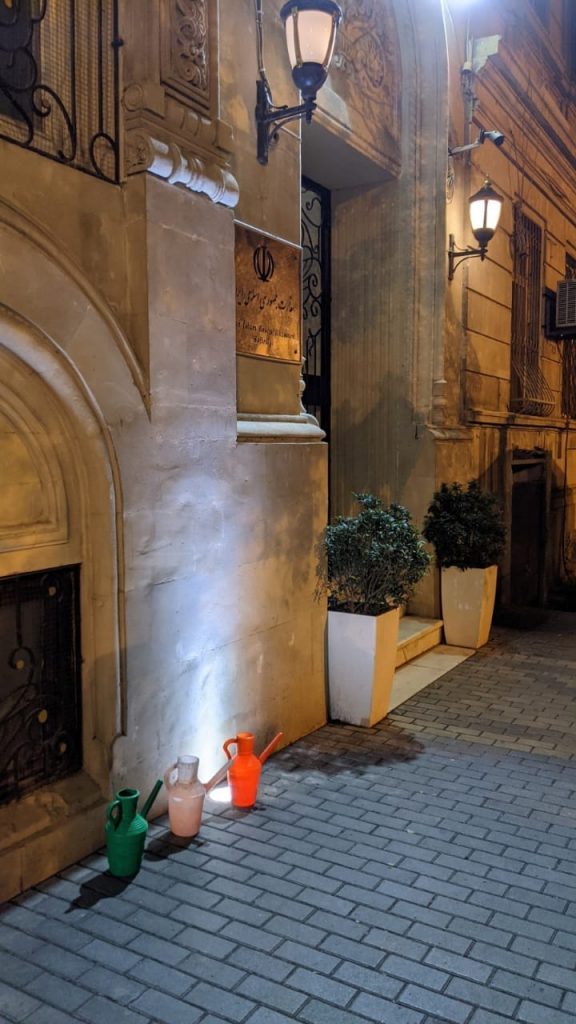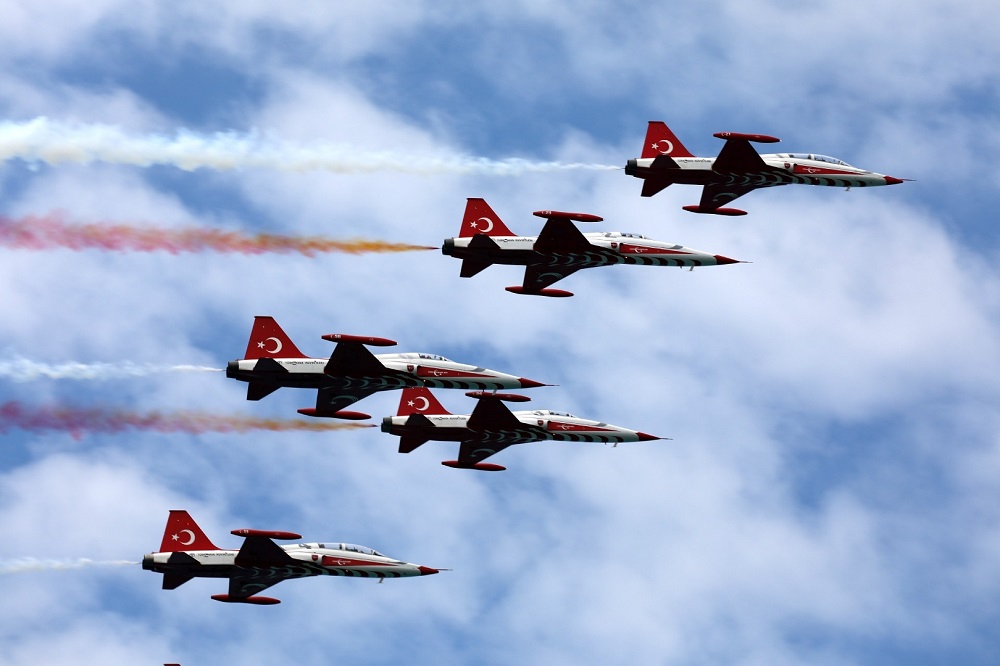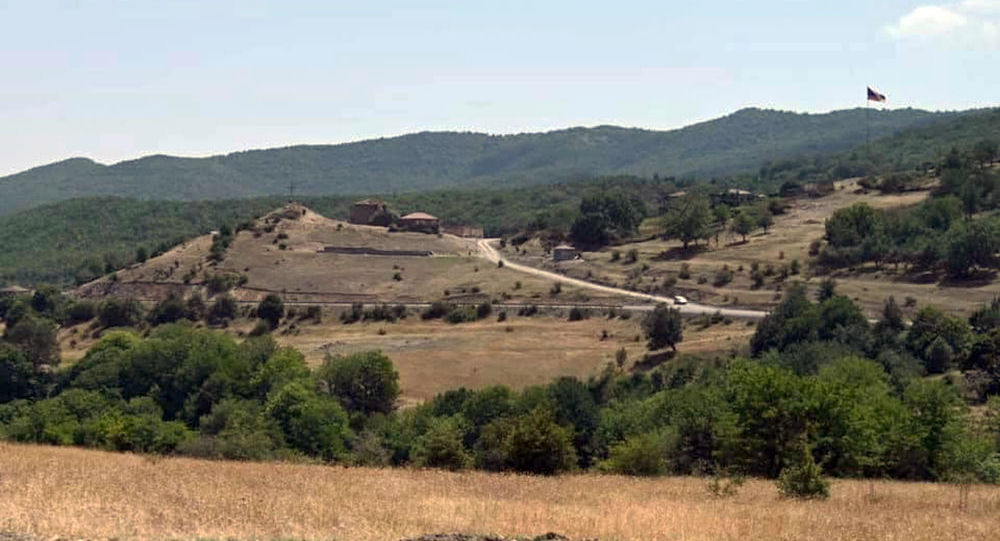Aggravation of relations between Azerbaijan and Iran - what's happening?
Relations between Azerbaijan and Iran have deteriorated in recent months, if not to say that they have deteriorated to a critical degree. The President of Azerbaijan and the leader of Iran have already expressed their disagreement with the policy pursued by the opposite side. What happened between these neighboring countries? Chronology of events and expert commentary.
- “The war was inevitable, but it is not the end yet”- experts analyze the second Karabakh
- Op-ed: USA and France are competing with Russia for Armenia
Arrest of two Iranian drivers
The history of discord in relations between Azerbaijan and Iran began when Baku, through its media, accused Tehran of direct supplies to the part of Karabakh controlled by the Russian peacekeeping forces. Photo and video materials were published proving the passage of Iranian trucks through the Lachin corridor towards Khankendi (Stepanakert).
After Azerbaijan established police and customs checkpoints on the part of the Goris-Kaplan road passing through the territory of Azerbaijan, two drivers – Iranian citizens – were detained and accused of illegally crossing the border.
Diplomatic contacts
After this event, in mid-September, close diplomatic meetings were held between representatives of the authorities of Iran and Azerbaijan. From the Azerbaijani side, the negotiations were conducted by the presidential aide Hikmet Hajiyev. He met with the Iranian Ambassador to Baku twice, and then the Deputy Foreign Minister of this country, who arrived in Azerbaijan on a working visit.
Thanks Ambassador @SAMOUSAVI9 for paying visit to us. We have had indeed fruitful discussions on the issues on our bilateral agenda and reviewed ways forward. https://t.co/aE7dLbCqms
— Hikmet Hajiyev (@HikmetHajiyev) September 13, 2021
Judging by the events that happened later, these contacts did not lead to any real results.
Exercises in the Caspian
In the second decade of September, Azerbaijan held joint military exercises with Turkey in the Caspian Sea. The reaction of official Tehran quickly followed.
Iranian Foreign Ministry spokesman Said Khatibzadeh expressed his country’s concern over the presence of Turkish troops in the waters of the Caspian Sea: “According to the legal status of the Caspian Sea, no state except five coastal states can have a military presence here. It is illegal”.
The Azerbaijani authorities, responding to these accusations, stated that the exercises with the involvement of Turkish military personnel were carried out in the territorial waters of the country, and did not pose any danger to the coastal countries.
Potato diplomacy
The Food Safety Agency of Azerbaijan has announced the discovery of a dangerous pest in potatoes imported from Iran.
“During the examination, a quarantine pest (Phthorimaea operculella – potato moth) was found in each batch”, the ministry’s press service said.
A few days later, the same agency completely suspended the issuance of safety certificates for potatoes imported from Iran.
The clergy join the fight
Hasan Amili, imam-juma of the city of Ardabil and the representative of the supreme leader of Iran, Ayatollah Ali Khamenei in the province of Ardabil, made a harsh statement to Azerbaijan:
“Iran’s Supreme National Security Council should allow the armed forces to use force on this side of the Araz [most of the border between Iran and Azerbaijan passes through the Araz River – JAMnews]”, he said.
“SEPAH (Revolutionary Guard Corps) should be allowed to conduct exercises along the borders to show them who is who, our strength. Let them be allowed to show the power of Iran, to demonstrate who we are on our own. To understand: “You shouldn’t play with the lion’s tail!”, Amily added.
He was answered by the head of the Caucasus Muslims Office, Sheikhulislam Allahshukur Pashazade.
“The well-known speech of Amily, of course, does not contribute to the strengthening of Iranian-Azerbaijani relations, the deepening of relations of friendship and brotherhood between our peoples. Unfortunately, the imam of the Ardabil mosque chose to close his eyes to the vandalism of the separatists. We, believers, should not talk about war, but about peace, reconciliation”, said the spiritual leader of Azerbaijan.
Goodwill gesture from Iran
On September 24, Iranian Ambassador to Azerbaijan Seyid Abbas Mousavi stated that a warning had been issued to private transport companies carrying out illegal transportation in Karabakh.
“Immediately after receiving official information from the Azerbaijani side, a number of steps were taken. Iranian companies were warned about the need to respect the territorial integrity of Azerbaijan”, he said.
Military exercises on the border with Azerbaijan and Aliyev’s reaction
At the end of September, Tehran announced its decision to hold large-scale military exercises in the northwest of the country, in the regions bordering with Azerbaijan. Heavy weapons began to be pulled into this region.
President of Azerbaijan Ilham Aliyev reacted to this decision of the Iranian authorities in an interview with the Turkish agency Anadolu.
“As for the military exercises held near our borders, this is a very unexpected event. Because during the 30 years of our independence, there have been no such events. First of all, I must say that every country has the right to conduct any military exercises on its territory. This is its sovereign right. Nobody can say anything about it.
But when we analyze this in terms of time, we see that this has never happened. Why now and why on our border? This question is not asked by me, but by the Azerbaijani society. Azerbaijanis around the world are asking about this.
The question is also asked why the exercises in this area were not carried out during the occupation. Why were the exercises not organized when the Armenians were in Jabrayil, Zangilan, and Fizuli? Why is this done after we liberated these lands and ended the 30-year occupation?
These are fair questions. Of course, we want the region not to have a situation that could strike a blow at long-term cooperation.
I would like to note once again that Azerbaijan is acting in a very responsible and balanced manner here too. I hope that the emotional reaction to our lawful steps is temporary”, he said.
Rally in front of the Iranian Embassy in Baku
On the night of October 1, 2021, Azerbaijani nationalists held a protest in front of the Iranian embassy in Baku.

They put three jugs with a spout in the colors of the Iranian flag in front of the entrance to the diplomatic department. These jugs are used in the Asian model toilets.
The participants in this action were detained by the police and brought to administrative responsibility.
Failure of Iranian exercises
According to Azerbaijani media, citing sources in Iran, a day after the start of large-scale military exercises, official Tehran decided to end them.
According to the same sources, one of the reasons for this decision was unforeseen circumstances during the exercise. Thus, a military helicopter of the Iranian army by mistake fired at a truck of its own army, as a result of which three soldiers were injured. During the exercise, a tank of the Iranian armed forces also ran over the car of a civilian who died at the scene.
Threats from Iran’s spiritual leader and foreign minister
Speaking to graduates of the military school, the spiritual leader of Iran, Ayatollah Hamnei, said that events in northwestern Iran, in some neighboring countries, should be resolved without the military presence of foreigners. “Let everyone remember that if someone digs a hole for his brothers, he will fall into it himself”, said Hamnei.
“Anyone who thinks that he can ensure his safety at the expense of another, let him know that soon he will get a slap in the face for this”, he added.
At the same time, he did not name any country and only scolded America, blaming it for the failure in Afghanistan and Europe. However, allusions to “events in northwest Iran” leave no doubt who he meant.
“Shootout” between Foreign Ministries
Immediately after Khamenei’s speech, Iranian Foreign Minister Hussein Amir Abdullahian made a speech.
“We will never tolerate the presence of a fake Zionist regime and its provocative actions near Iran’s borders, as well as geopolitical changes in the region and its borders”, he said in an interview with the local TV channel.
“Following the liberation of Nagorno-Karabakh, unfortunate events took place … Israel tried to use this opportunity and approach the borders of Iran, establishing its presence in a number of regions of Azerbaijan”, the minister said.
“We announced this to the Azerbaijani authorities through diplomatic channels”, he said.
His statement on October 4 was followed by a response from the Azerbaijani Foreign Ministry.
“We reject statements about the presence and instigating actions of any third forces near the Azerbaijani-Iranian border because they are groundless.
The presence on the territory of Azerbaijan of any forces, including terrorist ones, which may pose a threat to both our state and neighboring countries, cannot be a subject of discussion.
… It is known that it was Azerbaijan that for decades suffered from the military occupation of a part of its territory and violation of international borders. Including more than 130 km of our border with Iran was under Armenian occupation for many years. Unfortunately, over the years, we have not heard such a decisive reaction from a friendly Iranian state as today, in connection with the occupation of a part of our border”, said Leyla Abdullayeva, an official representative of the Azerbaijani Foreign Ministry.
Commentary by political observer Shahin Rzayev
The current aggravation of Azerbaijani-Iranian relations is not the first and not the last crisis between two neighboring, formally friendly states. I’ve had worse. One can recall the Iranian helicopter raid in August 2001 on the controversial Serdar / Cengal field, which is located on the border of the Azerbaijani and Iranian sectors of the Caspian Sea. Then, in response to the raid of Iranian helicopters, an air parade of Turkish F-16 “Türk Şahinleri” fighters took place in Baku. After that, Tehran’s ambitions subsided significantly.

Then, during the Bush and even Obama administrations, there were projects of striking Iranian nuclear facilities. But then the leadership of Azerbaijan unequivocally stated that it would not provide its territory for waging a war against friendly Iran.
Now Iran is conducting military exercises near the borders of Azerbaijan and Turkey. Of course, each state has the sovereign right to conduct any maneuvers on its territory. However, these maneuvers are accompanied by anti-Azerbaijani statements at a fairly high political level. We are almost called “the den of Zionism” and so on.
All this means that the current Iranian maneuvers have a specific purpose. This is a kind of demarche, a gesture aimed at intimidating Azerbaijan.
The reason for such a sharply aggressive reaction, in my opinion, lies in the results of the second Karabakh war. Iran did not expect such a successful operation from Azerbaijan. As a result, Iran lost about 130 kilometers of its uncontrolled border with the occupied territories of Azerbaijan. Through these territories, minerals and non-ferrous metals were exported to Iran for a priceless price. And in the opposite direction, according to the Azerbaijani authorities, drugs were smuggled.
Secondly (and maybe even firstly), Iran is very concerned about the possible warming of the Armenian-Turkish relations. After all, if the border between Turkey and Armenia opens, and transport links between Azerbaijan and the Autonomous Republic of Nakhichevan through the territory of Armenia start working, Iran will lose huge profits. They will lose profit for transport to Nakhichevan through Iranian territory, this time. And Turkish goods, small businesses will oust Iranian business from the territory of Armenia – there are two.
There is also a moment that Tehran is afraid of, this is the rise of national consciousness in the northwestern provinces, namely, in the historical Iranian Azerbaijan. Some colleagues ask me- can Iran use the factor of Persian-speaking ethnic minorities in Azerbaijan? They ask me a question for a reason, they know that I represent one of such Persian-speaking ethnic groups (Absheron Tat).
I sincerely answer that this is complete nonsense. Iran is a multinational state, and there the state-forming ideology is not Persian nationalism, but Shiite Islam. Therefore, if Iran tries to somehow show activity in Azerbaijan and recruit its agents of influence, they will not be representatives of the Persian-speaking minorities, but radical Shiites. As, for example, in the Absheron village of Nardaran, with a strong Shiite community in 2004. But neither then nor after these attempts brought tangible results. Now they will not bring it all the more, because, in the battles for Karabakh, the Shiite community of Azerbaijan fought shoulder to shoulder with representatives of other communities.
Short forecast. We must be patient, should not give in to provocations. The maneuvers will pass, and Iran will soon return to its internal problems, of which it has so many.



















